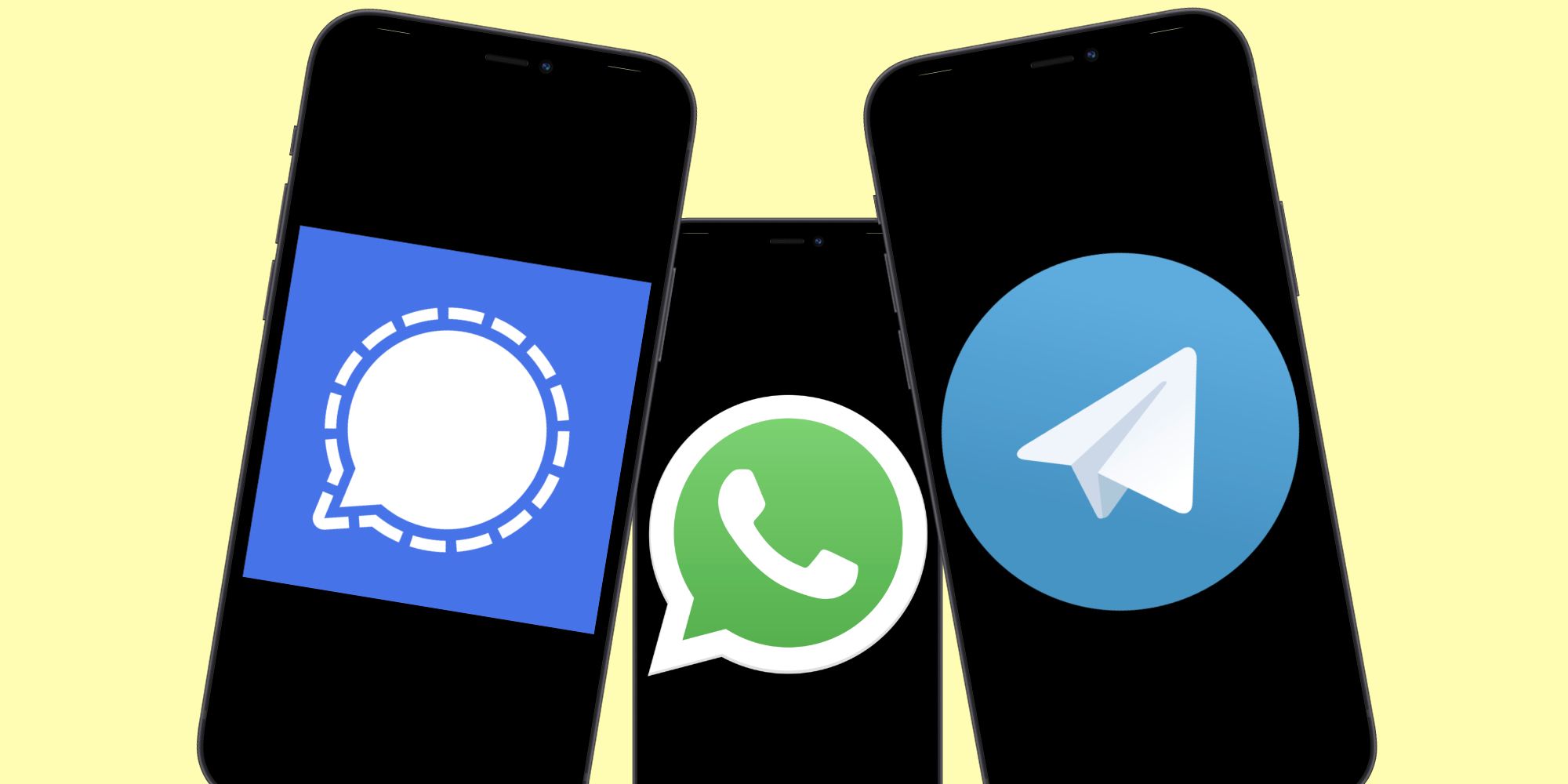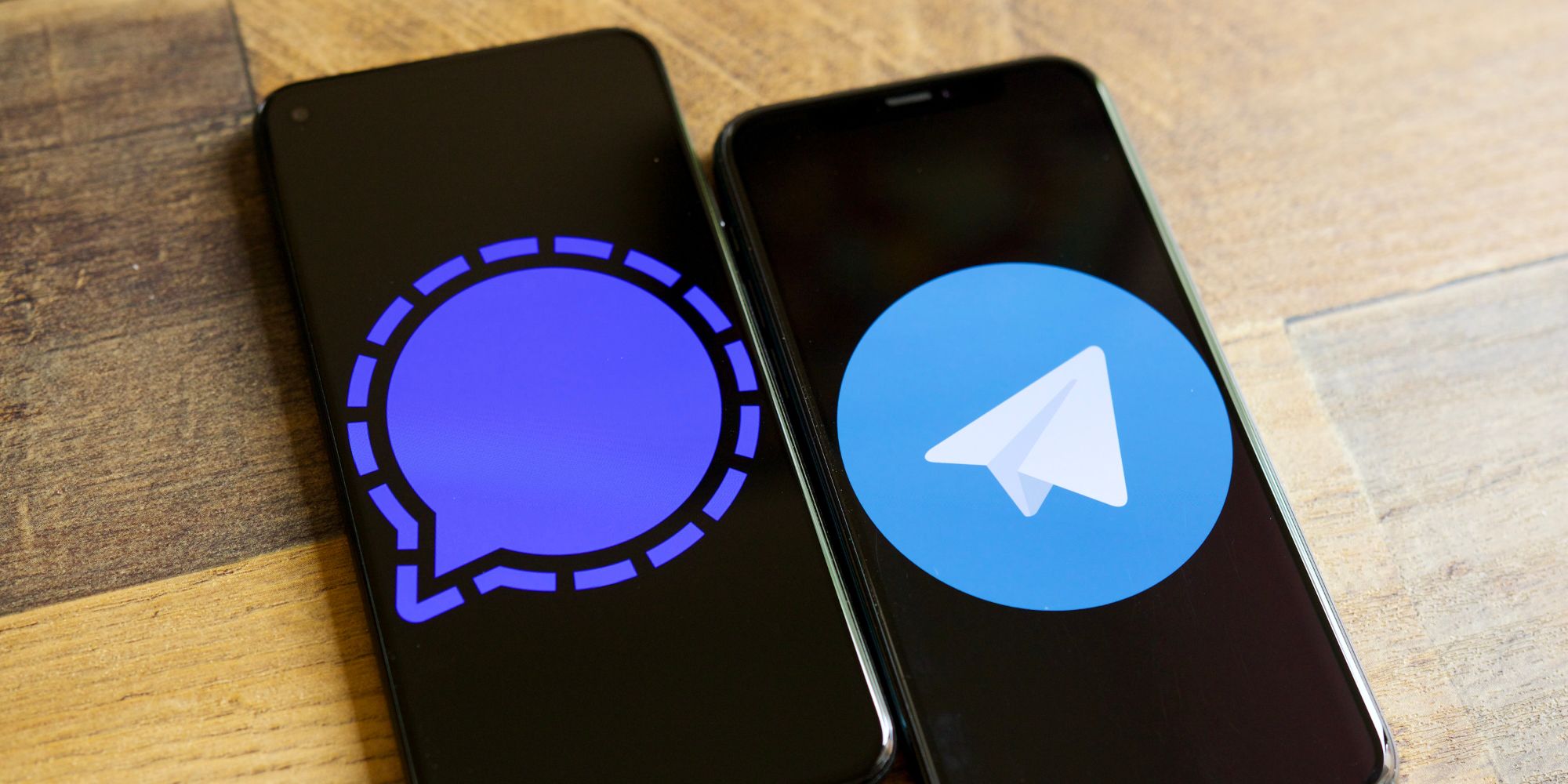In light of WhatApp's policy change that requires users to share more data with Facebook (er, Meta), many people have been flocking to alternative messaging apps like Signal and Telegram. Both services are strong messaging platforms in their own right, but for former WhatsApp users looking for a familiar experience, which is the best option?
In January 2021, WhatsApp announced it was updating its privacy policy to make data sharing with Facebook (WhatApp's parent company) a requirement for all accounts. The news rubbed a lot of WhatsApp users the wrong way, so much so that WhatsApp had to delay the policy change from February to May. WhatsApp spent the months in between trying to reassure people that their privacy would still be a top priority, but even so, numerous folks jumped ship for something else.
According to a report from SensorTower, WhatsApp downloads saw a sharp decline following that first announcement. Looking at downloads of the WhatsApp application between 2020 and 2021, there was a decrease of 43 percent. WhatsApp reached 53 million global installs in November 2020, but by April 2021, that went down to just 38 million. By comparison, Signal and Telegram downloads were both on the rise. Signal and Telegram downloads increased to 51 million and 64 million, respectively, in January 2021. While those numbers leveled out in the months that followed, it's evident that people are still on the hunt for an alternative to WhatsApp — especially now that the policy changes are in effect.
How Signal & Telegram Compare For WhatsApp Users
Signal and Telegram have become the most popular destinations for people wanting to escape WhatsApp, and as with all things in life, each app has its own set of pros/cons. For users that value privacy above all else, Signal is the best choice out of the two. Messages are end-to-end encrypted by default (just like WhatsApp), ensuring that no one — not even Signal — can access messages other than the people in the conversation. Signal also operates as a nonprofit with no ads or data tracking, making it one of the most privacy-centric messaging apps available. This does come at the cost of some features and app availability (there's no web client, for example), but that'll be a fair price to pay for many WhatsApp converts.
Telegram is essentially the opposite, offering a lesser focus on security while having a robust collection of features and customization that bests both WhatsApp and Signal. Telegram supports group chats of up to 200,000 users, has a web app, can be used with bots, and offers seemingly endless customization to tweak the app to users' exact liking. Telegram also does a good job of continuing to roll out new features on a pretty regular basis. The app gained robust options for meassage forwarding in August 2021, along with message reactions in January 2022. Telegram is a feature-rich messaging app unlike any other, but compared to WhatsApp and Signal, messages are not end-to-end encrypted by default. Telegram does have end-to-end encryption when using its Secret Chat feature, but that's clearly not the main focus of the service. Messaging on Telegram is still considerably safer than doing so over SMS texting, but for people who want the utmost security, it'll likely feel a bit lacking.
That's ultimately what this comparison comes down to — a battle of security vs. convenience. Not being able to use Signal on the web or more than one phone at a time can be annoying, but users get the reassurance that all of their conversations are end-to-end encrypted. For folks who are OK giving up some of the heightened security for additional features and personalization options, Telegram is the better choice. Both apps achieve what they set out to do, with the choice really coming down to what each user values the most.
Source: SensorTower


